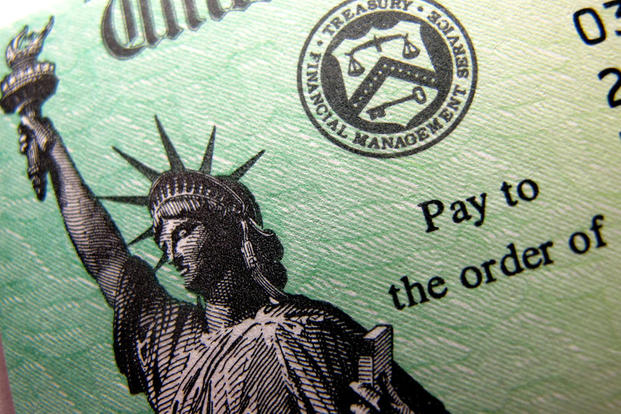Note: This article was originally published at USAA.com/community.
Just a few months ago, the idea of a "recovery rebate" would have been nonsensical. Fast forward to today, and it's part of our new reality.
As you're probably aware, the $2 trillion Coronavirus Aid, Relief and Economic Security (CARES) Act was designed to deliver $1,200 per person and $500 per eligible child to Americans across the country.
For example, a couple with two children could receive a total of $3,400. These rebates are subject to income limitations and are totally phased out at $99,000 for an individual or $198,000 for a couple that files jointly. The amount you receive is based on your latest tax return.
For many, the rebate will feel much like an additional tax refund -- over the last couple of years, the average refund to taxpayers has been around $3,000. How you deploy the money will depend on your personal situation.
Here are a few ideas for folks in different circumstances:
Single service member, dual-military couple, or one-income military family. It's likely that from a financial perspective -- if no other -- it's business as usual for you. Consider the additional influx of cash from the recovery rebate as an opportunity to build your emergency savings, pay down high-interest debt or even save for longer-term goals. Or perhaps an IRA contribution or even a vacation after we kick this thing to the curb.
Military member plus wage-earning spouse. We are just starting to see the traumatic impact of the pandemic on U.S. employment. I've seen projections of more than 30% unemployment across the country. When we overcome the virus, we may see a quick recovery, but my thought would be for couples in this situation to plan for a potential job loss. That's especially true if both your incomes are needed to meet your core expenses. In this scenario, consider adding your rebate to emergency savings. If you're able to weather the employment storm, you can redeploy the money later. This is also a good time to revise your budget and make the tough spending decisions that will allow you to be less dependent on both incomes.
Non-military individuals or couples. Remember, two-thirds of our economy is based on consumer spending. If we are doing, as I hope we all are, the right thing from a social-distancing standpoint, there are fewer opportunities to spend money. Increased unemployment numbers will further reduce spending. In that context, we are likely to see an economy that contracts significantly over the next couple of quarters. So, here again, consider playing it safe and using the rebate to establish or bulk up your emergency savings.
With the Federal Reserve's actions to reduce borrowing costs and maintain liquidity in our markets, fiscal actions like the CARES Act, and our resiliency as a nation, we will get to a better place. In the meantime, prudently manage the resources at your disposal to get there with as little pain as possible.
Check out this post for more tips on managing your economic stimulus check.















